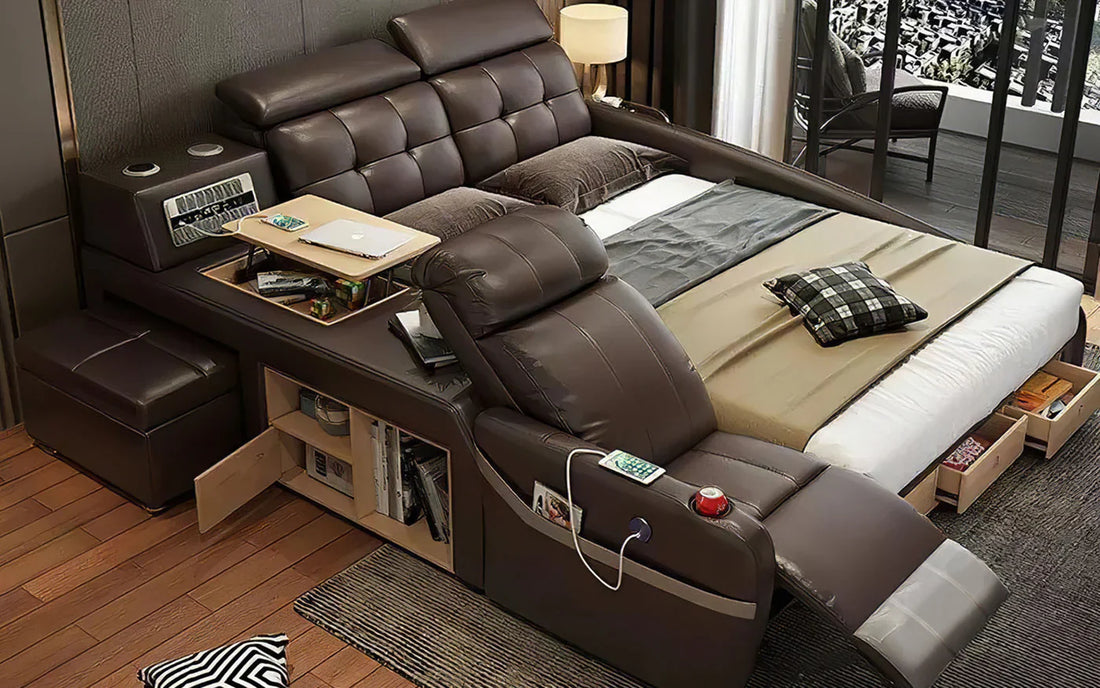
South Africa Smart Furniture Market Poised for Growth, Fueled by Sustainability and Home Automation Trends
Share

South Africa smart furniture market, is projected to grow to USD 48 million registering a compound annual growth rate CAGR of 5% by 2030, according to a recent report by Next Move Strategy Consulting. The market’s growth is driven by increasing environmental awareness, advancements in home automation, and the integration of Internet of Things (IoT) technologies.
Unlock a FREE Sample – Try Before You Buy!
Sustainability and Energy Efficiency: A Dual Commitment
The surge in environmental consciousness has led manufacturers to prioritize sustainability and energy efficiency in smart furniture design. Innovative features such as LED lighting systems and smart sensors are being integrated to optimize power consumption based on occupancy, aligning with global energy-saving goals. Moreover, the use of sustainable materials, including recycled or responsibly sourced options, underscores the industry’s commitment to eco-friendly practices.
Home Automation: A Major Growth Driver
The increasing prevalence of home automation systems is a significant factor boosting the demand for smart furniture. Consumers are seeking furniture that seamlessly integrates with their home automation setups, enabling them to control and monitor various aspects of their living spaces remotely. This trend reflects the growing desire for interconnected and technologically advanced home environments.
IoT Technology: The Backbone of Smart Living
The penetration of IoT devices into residential spaces is playing a pivotal role in the smart furniture industry’s evolution. Smart furniture equipped with sensors and connectivity features interacts seamlessly with IoT devices, offering personalized and efficient living experiences. This fusion of technology and design is ushering in a new era of intelligent and responsive living spaces, appealing to tech-savvy homeowners.
Challenges in Integration
Despite its promising growth, the smart furniture market faces challenges, particularly in integrating with existing smart home ecosystems. Compatibility issues can hinder the adoption of smart furniture, limiting its overall functionality and appeal to consumers.
The Rise of Wireless Charging
One of the emerging trends in the market is the integration of wireless charging capabilities within smart furniture. By embedding induction coils and compatible charging technology, manufacturers aim to provide a seamless and cable-free charging experience for devices such as smartphones and tablets. This feature addresses the increasing consumer demand for convenience and innovation in their everyday lives.
Conclusion
The South Africa smart furniture market is on a trajectory of steady growth, fueled by environmental consciousness, advancements in home automation, and the integration of IoT technologies. While challenges such as integration with existing systems persist, innovations like wireless charging present exciting opportunities for industry expansion. As smart furniture continues to redefine modern living spaces, Shopify’s robust e-commerce platform provides an ideal solution for retailers looking to capitalize on this growing market, offering seamless connectivity between businesses and tech-savvy consumers. By embracing these trends, businesses can position themselves at the forefront of the smart living revolution.